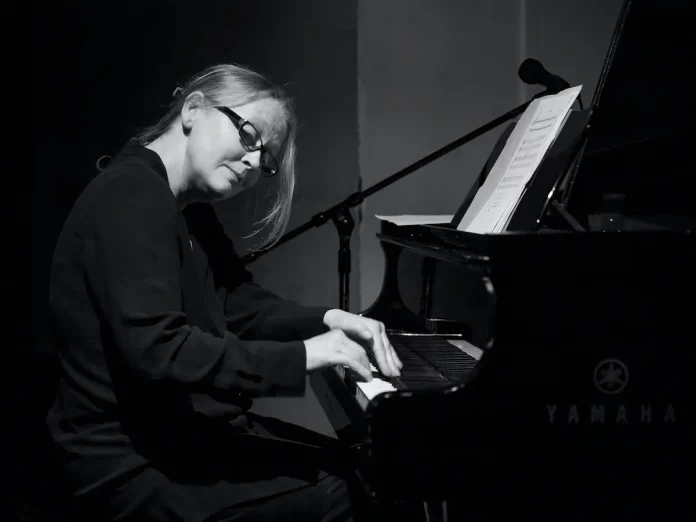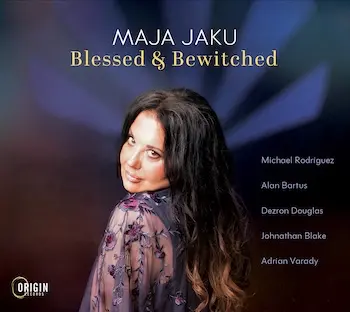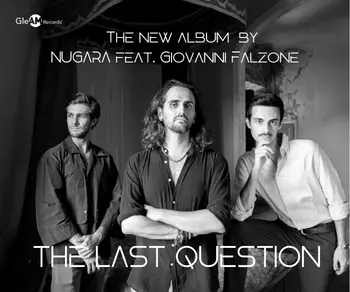Robin Holcomb & Peggy Lee: Reno (Songlines SGL1637-2)
I remember buying a copy of singer-pianist Robin Holcomb’s 1989 debut Larks, They Crazy shortly after its release. I was drawn to it as much by Marty Ehrlich, Bobby Previte and her future husband Wayne Horvitz, and it started a fascination with Holcomb’s music which has endured to this day. Her haunting voice carried distant echoes of Americana well before the word was formalised into a new musical genre, while her willingness to experiment was perfectly in keeping with the eclectic downtown New York scene.
Horvitz and Holcomb have long since relocated to the West Coast, but, as these duets with Canadian cellist Peggy Lee demonstrate, her creative life has not slowed down. These audiophile recordings were made in the Seattle home studio of William Molloy with a variety of instrument and room mics, subsequently edited and remixed by producer Horvitz. The collection includes eight instrumentals and eight songs drawn from different periods of Holcomb’s career, and from the yearning melancholia of Sorrow to the enigmatic twists and turns of Waltz it is utterly spellbinding.
Of course, it helps that Lee and Holcomb have been collaborators on the Pacific Northwest scene for much of the last two decades, and the cellist’s finely balanced lyricism and abstraction make her the ideal foil. Amongst the vocal pieces, I particularly enjoyed the world-weary narrative of the country-inflected I’m Gonna Lose Again; the ruminative new version of Larks is to die for, and there’s something quintessentially American about Copper Bottom. Lee’s wide timbral range comes to the fore on improvised tracks including Interlude, Reno and Top Hat, and the more through-composed pieces such as Skipping and Camptown suggest a link between Holcomb and Charles Ives that I hadn’t previously registered. Just like Ives, Holcomb is an American original, and her music is ageing like fine wine.
Pandelis Karayorgis with Noah Campbell & Brittany Karlson: Atmos (Driff Records 2503)
When Athens-born pianist Pandelis Karayorgis broke through in the 90s with a string of superb releases for Leo Records he was very much affiliated with the micro-tonal circle of Joe Maneri. Karayorgis had studied with Maneri, Paul Bley and Jimmy Giuffre and others at the New England Conservatory, and his playing seemed to draw as much on Monk and Tristano as the harmonic liberations of the Second Viennese school and the rhythmic abandon of Bartók and Stravinsky. He later co-authored an academic study of Monk’s harmonic system, and amongst a discography of over two dozen albums his Monk projects retain a special place.
This digital-only release from the label he co-founded with saxophonist Jorrit Dijkstra in 2012 is simultaneously released with a CD by his longstanding trio with Nate McBride and Randy Peterson. While it was tempting to review the better-known trio, particularly given my admiration for the brilliant Peterson, I suspect that this trio with saxophonist Noah Campbell and bassist Brittany Karlson will garner less coverage. The name of both the band and the album come from a Greek word for vapour, and in their music, which occupies a similar if slightly less rarefied space as Paul Bley’s mid-90s trio with Evan Parker and Barre Phillips, Karayorgis’s notes explain that he senses the effect of vapour rising and dissolving into the atmosphere.
Highly conversational, the lines between improvisation and composition frequently blur during the album’s six improvisations, five Karayorgis originals and single piece from Karlson (Faultlines). Karlson, who recently moved from Boston to New York, is equally at home inside and outside of the harmonic framework, while Campbell shares with Ellery Eskelin a similarly fluid relationship to the pre-bop tenor titans. On Here In July he slips effortlessly between old and new, while on Improvisation 5 and Neumes his clean and nuanced soprano recalls another Monk specialist, Steve Lacy. Even the more extrovert pieces such as Origin Story retain a strong sense of history, due in no small part to Karayorgis’s thorough absorption of Monk’s language. A wonderfully inventive and free-wheeling set, and as the final pellucid notes of the title track vanish into the aether I’m left hoping that Karlson’s move won’t spell the end for this trio.
Christian Wallumrød: Percolation (SOFA Music SOFA605)
Rather like compatriot Nils Petter Molvaer, Norwegian pianist-composer Christian Wallumrød has discovered that there’s life after ECM. Eicher’s revered label possibly struggled to contain Wallumrød’s Technicolor imagination, and as this brilliantly idiosyncratic solo set demonstrates, he is currently making some of the best music of his career. The title alludes to the process through which he filters his musical influences into a coherent flow. Echoes of the jazz, blues, baroque and church musics that have been ever-present throughout his career are transformed by an avant-garde sensibility, and it sometimes feels like an unlikely crossroads meeting between New York school mavericks Feldman and Cage and the dustbowl primitivism of John Fahey and Neil Young.
The album’s first-rate production values recall Nils Frahm’s Berlin Funkhaus, analogue and electronic sounds fusing into a warm and slightly viscous sound, with the piano’s every mechanical blemish faithfully preserved for posterity. Marrowing immediately sets the tone, a wistful folk fragment played slowly and repeatedly, Wallumrød happy to let its long silences speak. The Monkian dissonances of Noble Fir at first appear little more than a series of false starts, but a tense and somewhat claustrophobic grip gradually takes hold. Ny Gitar by contrast is a perfectly formed miniature, laced with the joyful melodicism of Jarrett’s celebrated Köln encore, while the dreamy You Didn’t features the sublime sound of heavily processed autoharp.
Elsewhere, Deer Naylla sees Wallumrød tapping into roots Americana, its structure deceptively suggesting the presence of a phantom vocalist, but the album’s biggest talking point is Higher Than Your Gluteus. Laying down a squelchy beat that could have been sampled from a vintage Atari games machine, Wallumrød overlays a dominant left-hand boogie pattern and a hummable melody which irresistibly worms its way into the cortex. Possibly his strongest solo outing yet, Percolation will both confound and exceed your expectations in equal measure.




